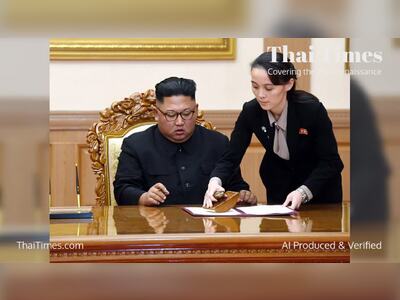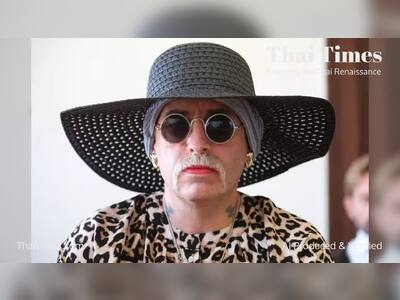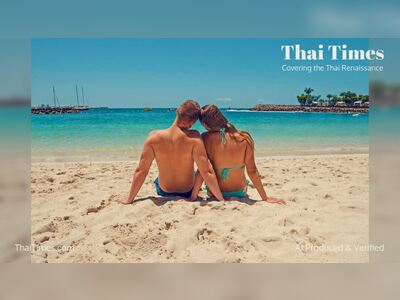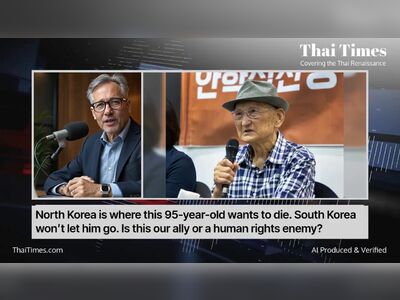
Thailand's Supreme Administrative Court Revokes 50-Year-Old Student Hairstyle Regulation
The annulment of a controversial 1975 regulation allows greater freedom of expression for students.
The Supreme Administrative Court of Thailand has annulled a 50-year-old Education Ministry regulation that mandated strict hairstyle codes for students.
The ruling, announced on March 5, 2025, concluded that the regulation, established in 1975, infringed upon individual freedoms guaranteed by the constitution and was incompatible with modern societal values.
The court's decision marks the end of a long-standing contentious issue that had led to disputes among students, parents, and educators.
The original regulation dictated hairstyle restrictions for male and female students, prohibiting boys from having beards or moustaches and requiring them to keep their hair cut short.
Likewise, girls were not allowed to grow their hair below their ears and were prohibited from wearing any makeup.
The policy was based on directives issued by a military junta in 1972, which aimed to cultivate discipline among students.
However, the court ruled that the enforcement of these hairstyle standards had adverse effects on students and contradicted provisions of the Child Protection Act of 2003.
The Supreme Administrative Court stated that the regulations were not in the best interests of the students.
The ruling is viewed as a significant victory for a group of 23 students who initially petitioned the Administrative Court in 2020 for the regulation's revocation.
In response to the court's decision, the Education Ministry has indicated a shift towards allowing schools greater autonomy regarding hairstyle and dress codes.
This aligns with changes instituted in 2024, where some schools have begun to adopt more flexible policies on student appearances.
Individual schools may now decide how to implement the guidelines, with some delegating authority to parents, while others may rely on decisions made by school executives or joint committees consisting of teachers and parents.
Despite the legal advancements, reactions on social media have revealed ongoing concerns, particularly from student activist groups like Bad Student, which advocate for greater freedoms within the educational system.
Some commentators expressed skepticism, noting that certain educators may still enforce traditional standards against long hair.
Comments highlighted a perceived overemphasis on uniformity in Thai education, arguing for a stronger focus on equipping students with skills relevant to future employment and the global economy.
The ruling, announced on March 5, 2025, concluded that the regulation, established in 1975, infringed upon individual freedoms guaranteed by the constitution and was incompatible with modern societal values.
The court's decision marks the end of a long-standing contentious issue that had led to disputes among students, parents, and educators.
The original regulation dictated hairstyle restrictions for male and female students, prohibiting boys from having beards or moustaches and requiring them to keep their hair cut short.
Likewise, girls were not allowed to grow their hair below their ears and were prohibited from wearing any makeup.
The policy was based on directives issued by a military junta in 1972, which aimed to cultivate discipline among students.
However, the court ruled that the enforcement of these hairstyle standards had adverse effects on students and contradicted provisions of the Child Protection Act of 2003.
The Supreme Administrative Court stated that the regulations were not in the best interests of the students.
The ruling is viewed as a significant victory for a group of 23 students who initially petitioned the Administrative Court in 2020 for the regulation's revocation.
In response to the court's decision, the Education Ministry has indicated a shift towards allowing schools greater autonomy regarding hairstyle and dress codes.
This aligns with changes instituted in 2024, where some schools have begun to adopt more flexible policies on student appearances.
Individual schools may now decide how to implement the guidelines, with some delegating authority to parents, while others may rely on decisions made by school executives or joint committees consisting of teachers and parents.
Despite the legal advancements, reactions on social media have revealed ongoing concerns, particularly from student activist groups like Bad Student, which advocate for greater freedoms within the educational system.
Some commentators expressed skepticism, noting that certain educators may still enforce traditional standards against long hair.
Comments highlighted a perceived overemphasis on uniformity in Thai education, arguing for a stronger focus on equipping students with skills relevant to future employment and the global economy.











